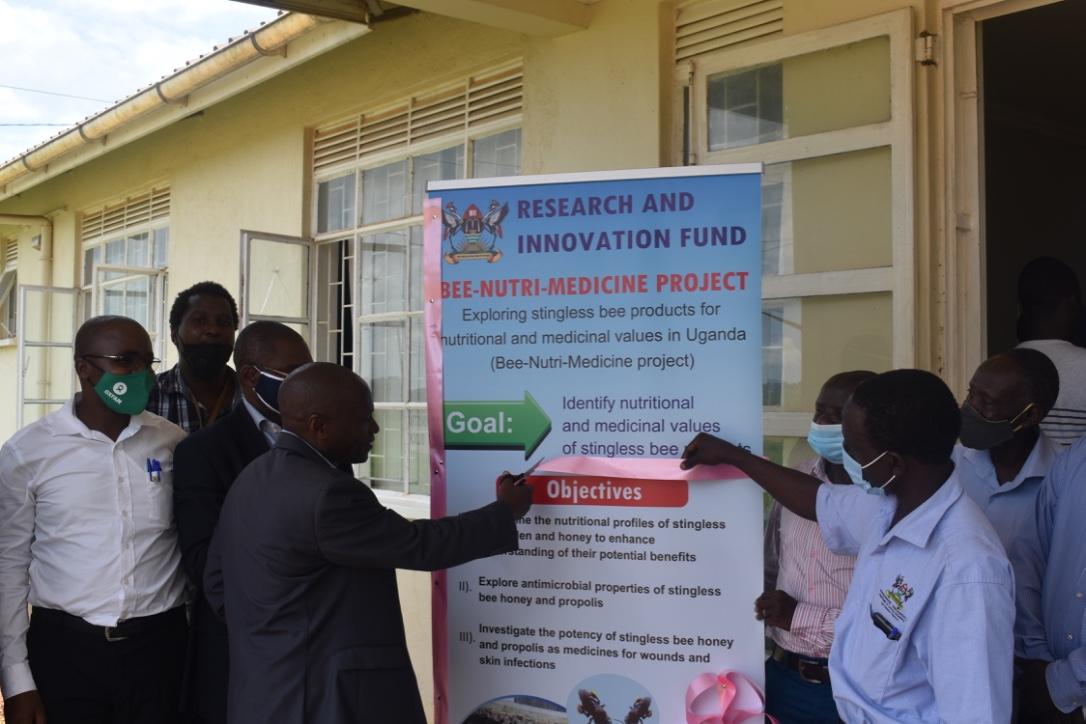The Bee-Nutri-Medicine research project was launched yesterday (28th October 2020) at the National Livestock Resources Research Institute (NaLIRRI), Nakyesasa, Wakiso District. The project is ‘Exploring stingless bee products for nutritional & medicinal values in Uganda’. The Principal Investigator, Dr. Moses Chemurot from the Department of Zoology, Entomology and Fisheries Sciences (ZEFs) is working with partners at NaLIRRI, Ministry of Agriculture Animal Industry and Fisheries (MAAIF), Golden Bees Limited, Kyambogo University and Dr. Ambrosoli Memorial Hospital to implement the research.
In his remarks while explaining the details of the research project, Dr. Chemurot highlighted its objectives asi) Determine the nutritional profiles of stingless bee pollen and honey to enhance understanding of their potential benefits; ii) Explore antimicrobial properties of stingless bee honey & propolis; and iii) Investigate the potency of stingless bee honey & propolis as medicines for wounds & skin infections. He further reiterated that the theme was chosen because ‘stingless bees are given less attention in beekeeping development programmes and there is limited understanding of the benefits from these insects. He noted that beekeeping is ranked second (when all aspects including pollination services and bee products is considered) among livestock income generating activities in Uganda and therefore must be given the necessary support.

The Co-PI, Dr. Kasangaki from NaLIRRI noted the importance of the research highlighting the synergy and collaboration realised among the various partners. He thanked the Government of Uganda for funding the research through Mak-RIF.
The Head of Department ZEFS, Dr. Eric Sande congratulated the team for winning the grant considering the competition of the many deserving applications. Dr. Sande welcomed participants to the launch and encouraged others to partner with Makerere University in providing solutions to challenges affecting our communities and nation. MAAIF was represented by Mr. Lawrence Tusimomuhangi, the Assistant Commissioner – Entomology. In his remarks the Commissioner said, ‘We have high expectations of results from this research and government is always on the lookout for economic viability of the various initiatives. It is our hope that the results from this project will provide more knowledge on how we can further utilise beekeeping and its products for income generation’.
Issues including sustainability of natural resources; linkage with the National Drug Authority and National Chemotherapeutic Laboratory; efficacy of the products; use of agrochemicals and its effects on beekeeping were raised by the participants.


